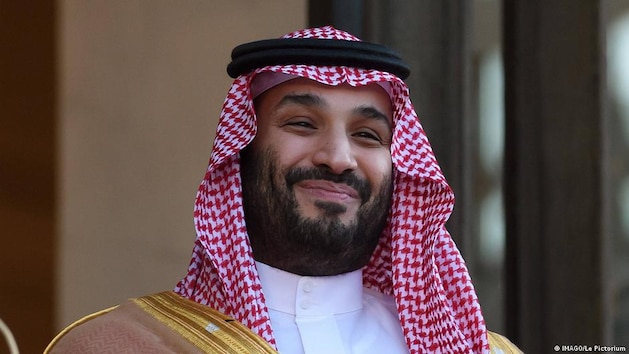Since Crown Prince Mohammed bin Salman, or MBS for short, became Saudi Arabia’s de facto ruler, the state has experienced two opposing developments. With a far-reaching modernization process, called “Saudi Vision 2030”, the government wants to make the economy independent of oil, open the country to tourism and improve women’s rights. At the same time, it uses the Anti-Terror Law to crack down on civil society, especially human rights activists and religious scholars who do not line up with the government.
The number of executions is also increasing: it has almost doubled since 2015. This shows a report by Reprieve, an international organization against the death penalty, and the human rights initiative European Saudi Organization for Human Rights (ESOHR). While there were an average of 70 executions between 2010 and 2014, between 2015 and 2022 there was an average of 129 executions per year. “The average number of executions has increased by 82 percent,” says the report, “despite the country projecting a modern image to the outside world.”
“The concept of modernization pursued by MBS is very selective and dependent on political whims,” ESOHR Director Ali Adubisi told DW. “The executions are a mainstay of his repressive behavior. He uses them to intimidate his people to ensure as much silence as possible.”
This is confirmed by Julia Legner from ALQST, a Saudi human rights organization in London. “If the government was serious about the reforms, then they would allow the Saudi people to be at the center of them,” she told DW. “However, in a country without a free civil society, government reforms are a political tool to silence all criticism from inside and outside.”
Sebastian Sons, scientist at the think tank Center for Applied Research in Partnership with the Orient (CARPO) in Bonn, sees hardly any signs of a political opening – despite the economic changes and social liberalization: “Quite the opposite. Repression is an integral part of Saudi rule under MBS.”
On the one hand, Saudi Arabia repeatedly points out “that these are internal matters in which the West should not interfere,” Sons told DW in an interview, and “that those sentenced to death are terrorists and you guarantee national as well as international security”.
The murder of Saudi dissident Jamal Khashoggi in the Saudi consulate in Istanbul in 2018 caused outrage around the world and temporarily isolated the country. But most trials of activists or critics don’t get that kind of international attention.
Such trials usually take place in the Saudi Specialized Criminal Court (SCC), a court with jurisdiction over terrorism and threats to state security cases. In 2022, for example, the judges at the SCC sentenced the two women Salma al-Shihab and Nura al-Kahtani to 34 and 45 years in prison, respectively, for sharing Twitter posts by women rights activists.
“The Saudi definition of terrorism leaves the judiciary with the discretion to hand down harsh sentences, including the death penalty and exceptionally long prison sentences, even for criticism of the government,” Ramzi Kaiss of the human rights organization MENA in Geneva told DW. The anti-terrorism law is very vague. An act of terrorism, for example, could be “any act that disrupts public order, undermines national security or the stability of the state, or threatens national unity. But none of these terms are defined.”
ESOHR director Ali Adubisi is extremely concerned: “There are alarming indications that more than 60 men are currently facing the death penalty, including minors. It is very likely that Saudi Arabia will soon carry out individual or even mass executions.”
His concerns stem from the mass executions in March 2022. Although a 2020 royal directive stipulated that no executions should be carried out on the basis of discretionary decisions invoked under the Anti-Terrorism Act, 81 prisoners charged under the Act were killed.
CARPO employee Sebastian Sons is convinced that the royal palace is closely monitoring international reactions to Saudi human rights violations. He can “imagine that this debate will also gain momentum within Saudi Arabia, for example if major events take place in Saudi Arabia, which then stir up international criticism again”. These could be international sports events, which Saudi Arabia has successfully applied for as part of its global sports offensive.
The Saudi tourism authority recently announced that Saudi Arabia will be one of the official sponsors of the women’s soccer World Cup in Australia and New Zealand in the summer of 2023. The host football associations of Australia and New Zealand have protested sharply and lodged a complaint with world football’s governing body FIFA – citing the fact that Saudi Arabia had banned women from playing football and even entering stadiums until 2017.
Saudi Arabia will also host the 2027 Asian Football Championship and the 2029 Asian Winter Games, and is bidding to host the 2030 Men’s Football World Cup alongside Greece and Egypt.
Crown Prince Mohammed bin Salman did not respond to DW’s request for comment.
This article has been adapted from English.
Author: Jennifer Holleis
Dieter Bohlen has to dress warmly. DSDS juror Katja Krasavice is violently against him – and does not seem to be finished yet. She shared an explosive video on TikTok, including private Whatsapp messages.
What exactly was behind the Chinese espionage operation with the balloon is still unclear. The already tense relations between the USA and China are becoming even more difficult as a result.
The original of this article “Saudi Arabia: Executions despite reforms” comes from Deutsche Welle.








